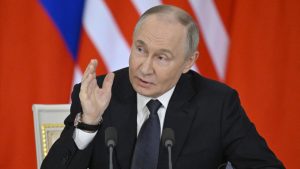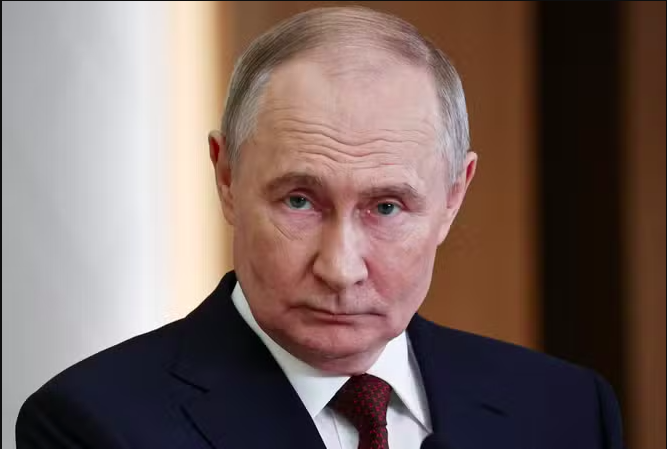Russian President Vladimir Putin has intensified his military campaign in Ukraine, launching what is now considered the largest wave of drone and missile attacks since the war began in 2022. Over the course of a weekend in May 2025, Russia reportedly deployed more than 350 drones along with several cruise missiles in a sweeping assault targeting major Ukrainian cities, including Kyiv and Kharkiv. The Ukrainian air defense systems managed to intercept most of the threats, but the attacks caused significant damage and civilian casualties, reigniting international condemnation of Russia’s ongoing aggression.
Putin’s latest offensive appears to be aimed at crippling Ukraine’s infrastructure and morale as the war drags into its fourth year. Analysts believe the Kremlin is trying to gain leverage ahead of possible peace negotiations, though there is little indication that Ukraine is willing to concede territory or sovereignty.

Amid this renewed violence, former U.S. President Donald Trump, who is currently serving a second term, broke his recent silence on the conflict. In a press briefing, Trump called Putin “absolutely crazy” and described the attacks on civilians as “monstrous and senseless.” He also warned that such actions would only accelerate Russia’s global isolation and economic decline. Trump hinted at the possibility of new U.S. sanctions against Moscow, though specifics have yet to be announced.
However, Trump’s posture toward Putin has not always been so hardline. Earlier this year, he sparked controversy by proposing a peace plan that excluded Ukraine from direct negotiations—essentially suggesting that the U.S. and Russia could broker a deal without Kyiv’s input. Ukrainian President Volodymyr Zelenskyy strongly objected to the move, stating that Ukraine would not be sidelined in decisions about its own future.
The geopolitical situation remains fragile. While Putin presses forward militarily, Ukraine continues to receive limited Western support, and Trump faces criticism at home and abroad for what many perceive as an inconsistent foreign policy. The international community watches closely, hoping for diplomatic progress but bracing for further escalation. As the war grinds on, the human cost continues to rise, and a clear path to peace remains uncertain.

